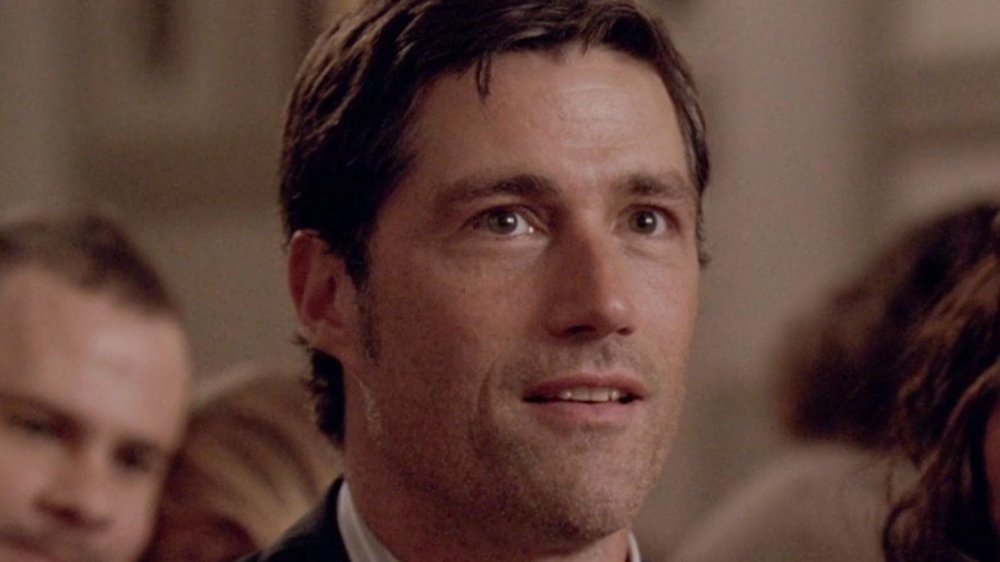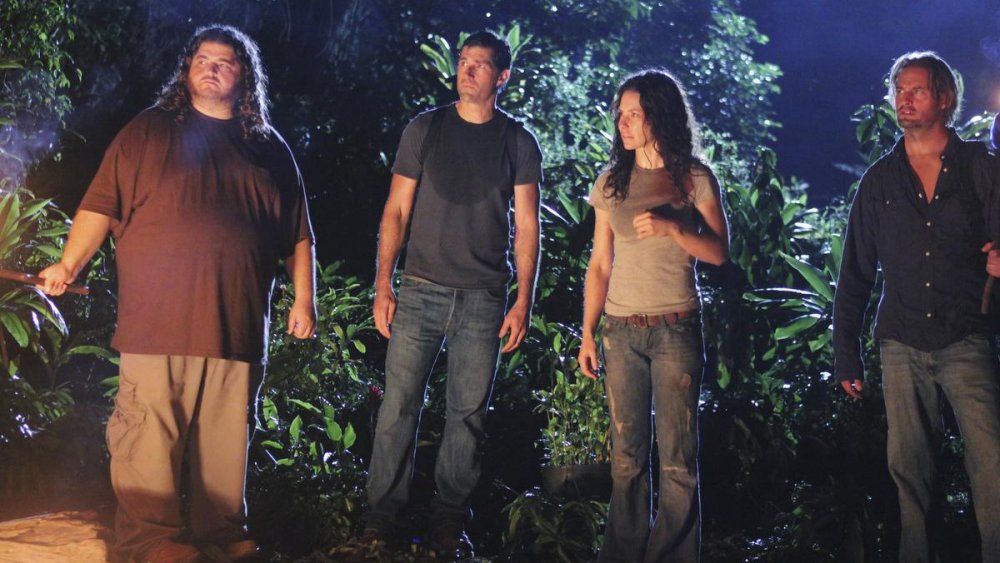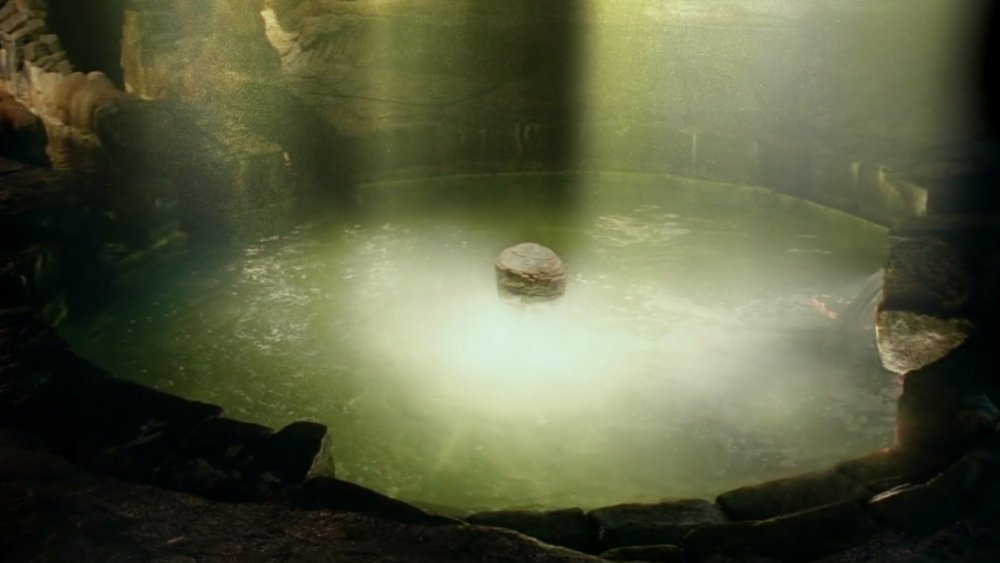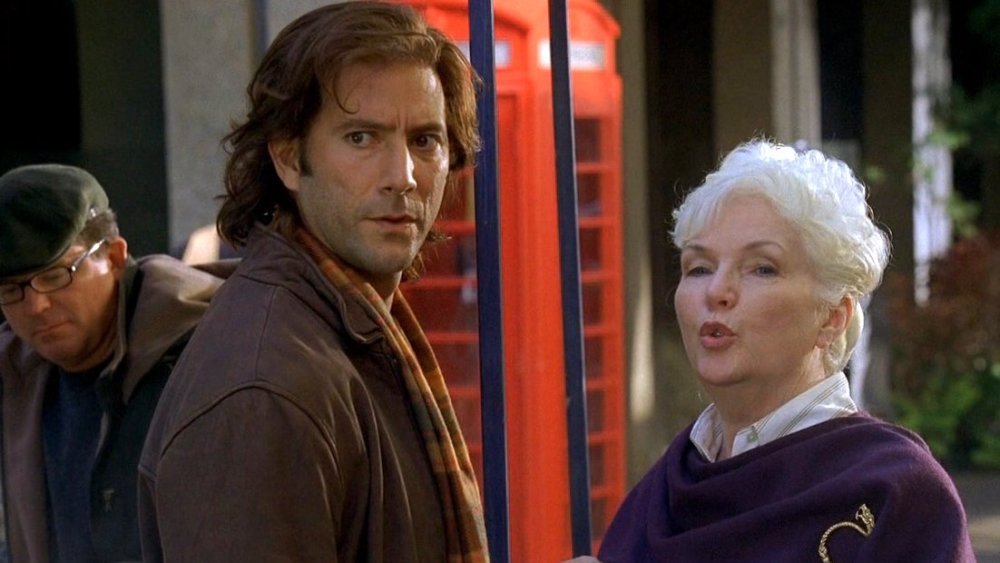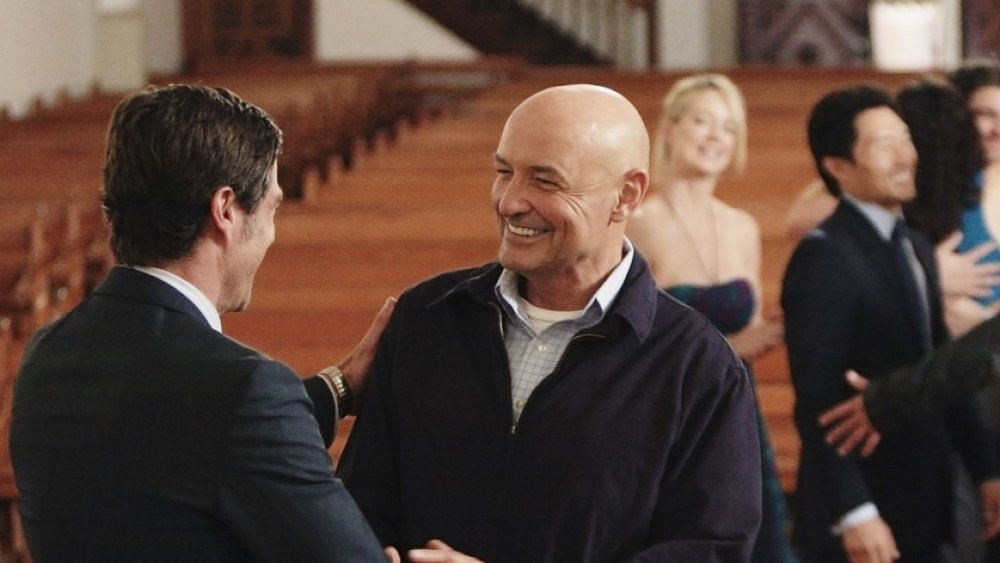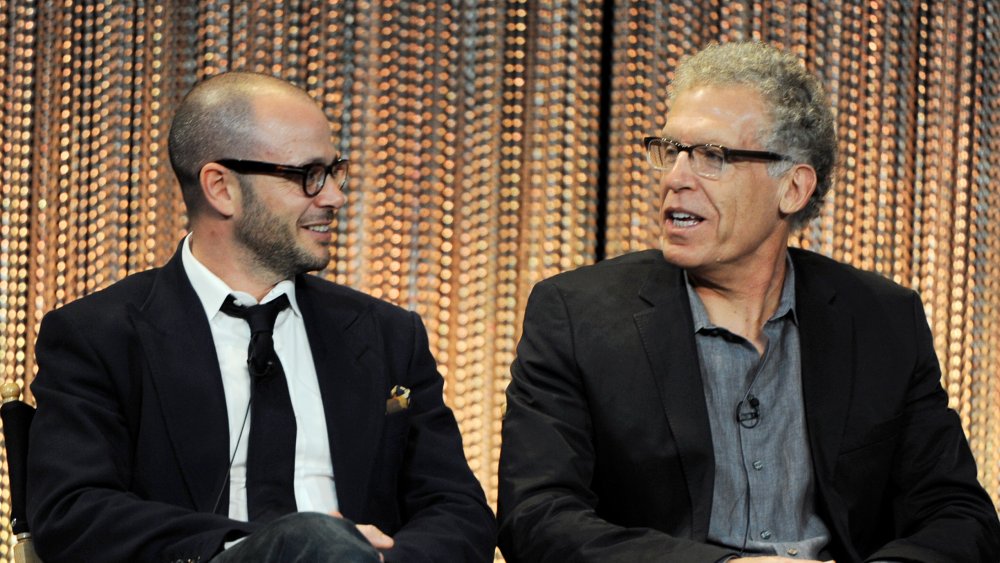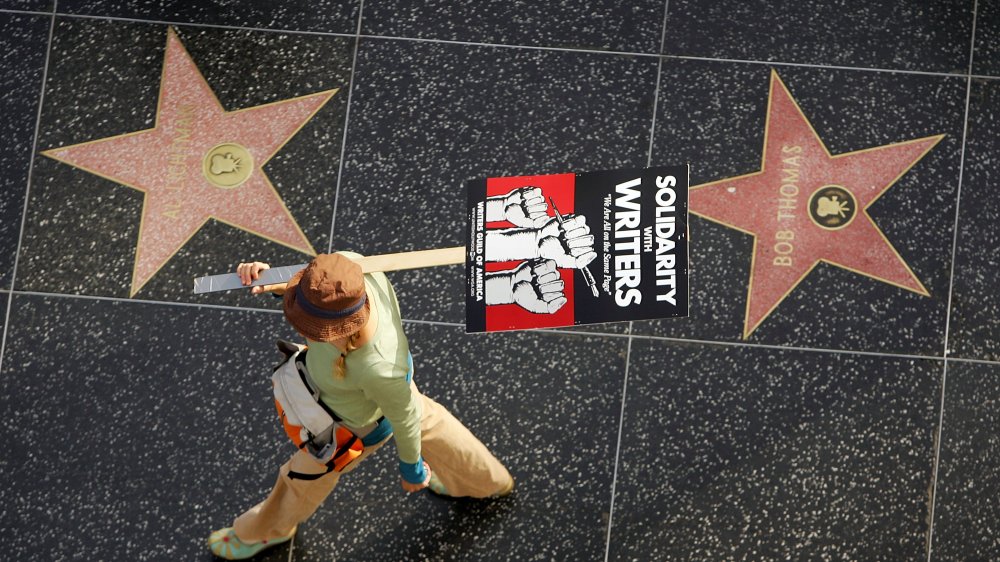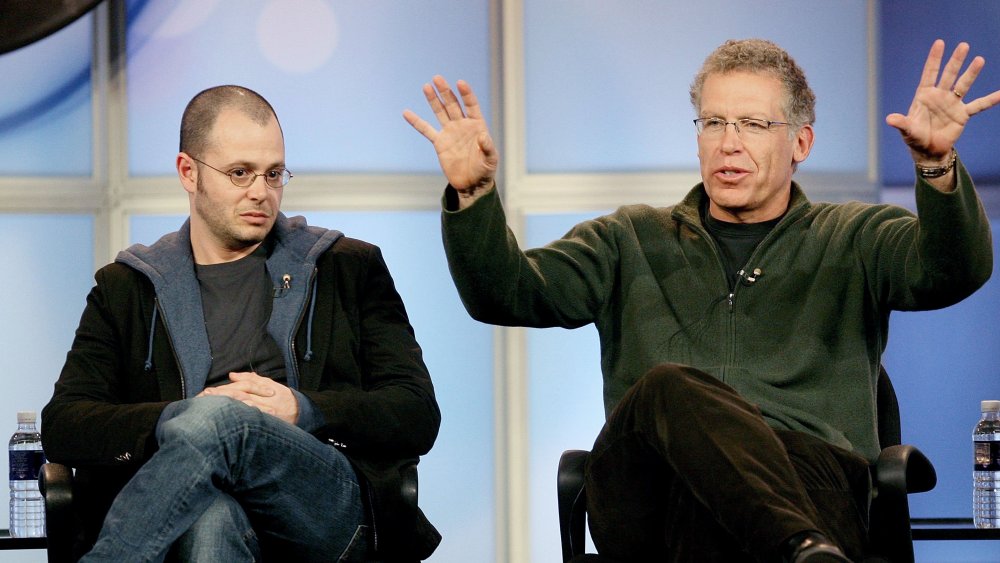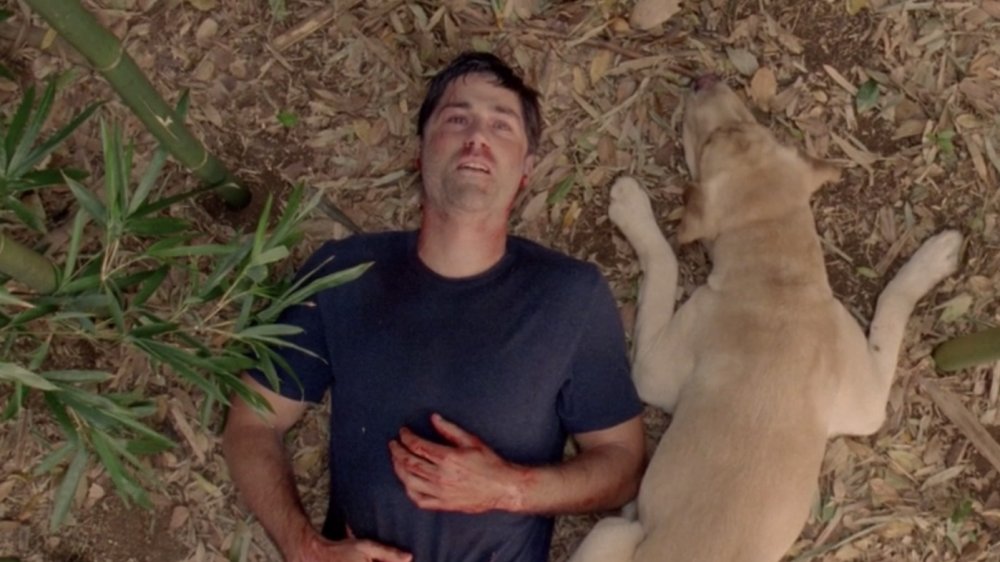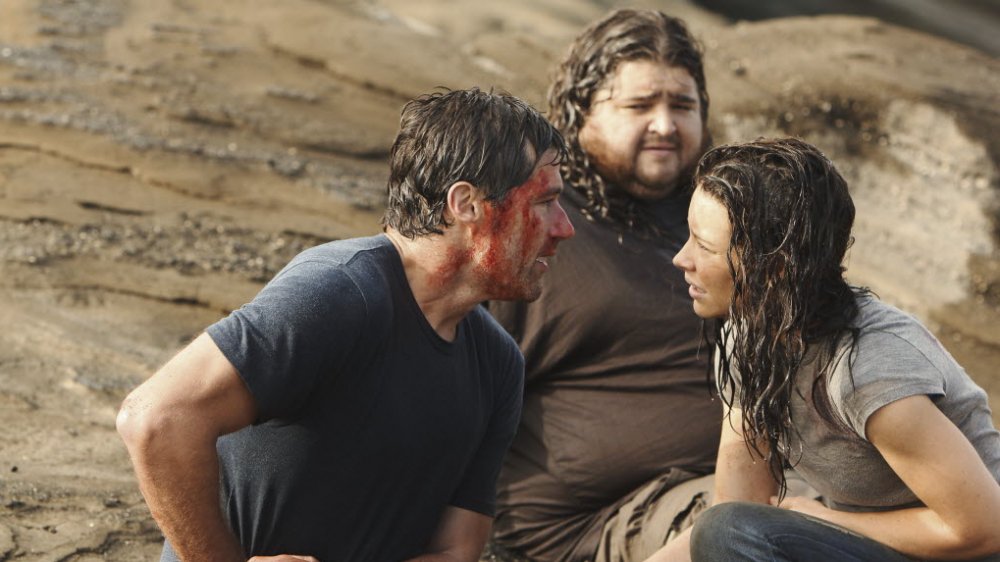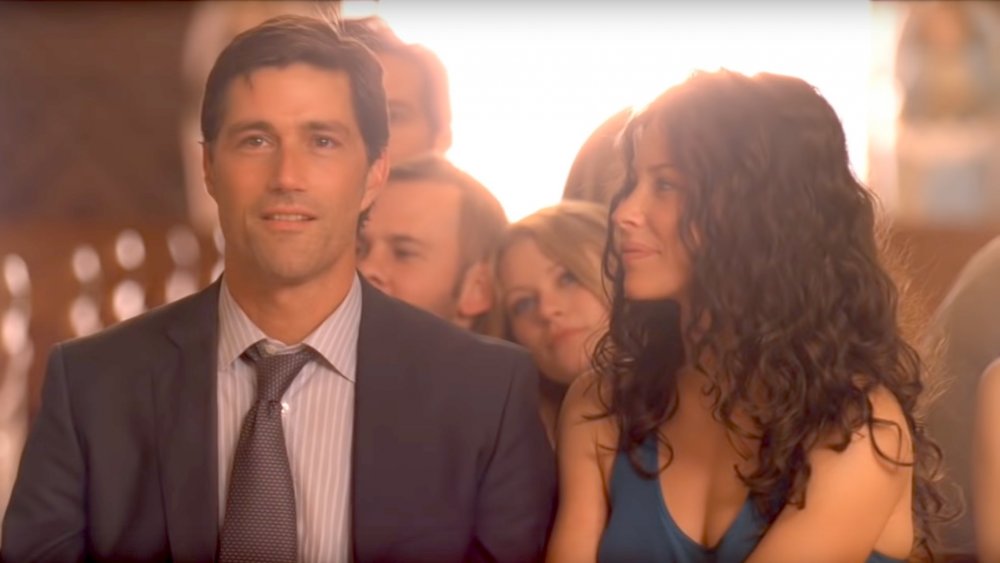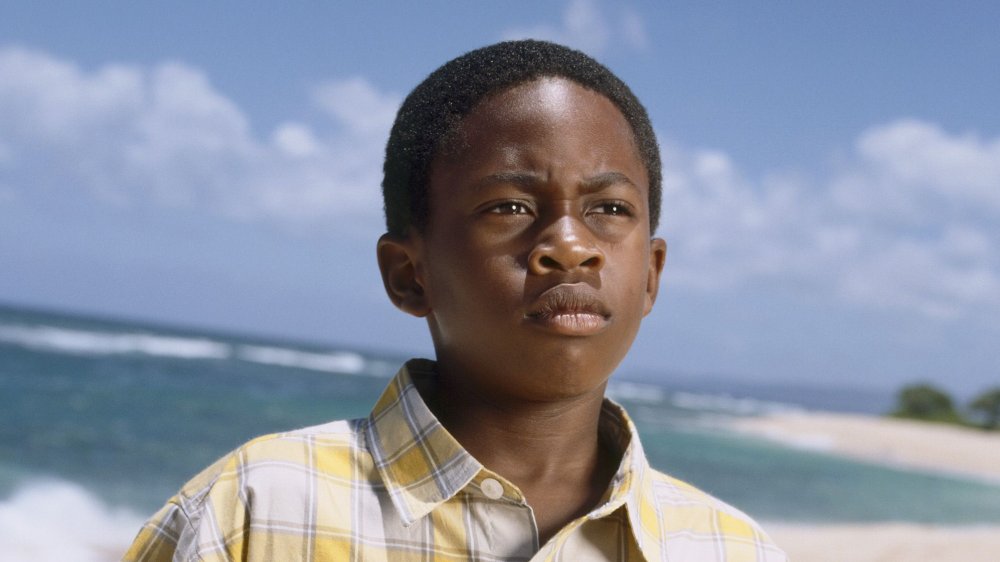Things People Still Get Wrong About The Ending Of Lost
Over the course of its six seasons, Lost presents a sci-fi mystery bathed in hidden spiritualism. In the long run, however, it is rooted most firmly in its characters. The series begins with a group of strangers onboard Oceanic Flight 815, who crash-land onto a mysterious island. Shortly after their arrival, strange things begin to happen. While Lost tells the larger story of the survivors trapped on the island, each episode also peers into the backstory of one specific character. In this way, from the very beginning, the show makes it clear that its characters are the true focus of the show.
Seems simple, right? Wrong. Lost's finale left a lot of people confused. See, the show's six seasons bring the audience back in time, forward in time, and even into a parallel dimension. Then there are the mysterious entitles thrown into the mix, including the Dharma Initiative, the lottery numbers, outside instigators, and a set of rules we never actually learn. Unbelievable science, mysterious immortal beings, and even a bit of magic are all present here. Unsurprisingly, this leads to questions — not all of which are answered. But a whole lot of them are, even if fans don't realize it. Here are a few of the biggest things people still get wrong about Lost's finale.
Wrong #1: "They were dead the whole time"
Theories about the island and the survivors of Oceanic Flight 815 began to swirl almost immediately after Lost's debut. The most discussed theory of all established itself immediately: Fans postulated that the characters are all dead. Each and every one of them, the thinking goes, is in a type of purgatory — not Heaven, not Hell, but that limbo place where, depending on what religion we're talking about, people have to face their past mistakes and learn from them. The theory makes sense in ... well, in theory. These characters are all, in a few different senses, lost, and have a lot of baggage, both literal and metaphorical. That they would need to spend time in a nowhere place and work through their traumas makes sense.
But ultimately, this purgatory theory doesn't pan out. Why? Because people start dying. Can people die in purgatory? Who knows, but the fact that the show never presents the Losties as anything but real, corporeal people who need food and water and are subject to injury and death kind of puts the kibosh on that. Additionally, showrunners Damon Lindelof and Carlton Cuse are quite vocal about the island not being purgatory.
What actually happens on the island?
So if the island isn't purgatory and the survivors aren't dead, what is going on? Well, that's like asking what happens on the whole show — which is to say, a lot. Two groups of survivors land on the island: Our main characters, plus a group of "Tailies." They both encounter another group known as the Others, who came to the island as part of the Dharma Initiative, or are the descendants of those who did. Conflict between these groups emerges, and the characters experience acts of actual magic: Time travel is possible, injuries are healed, and the dead are able to speak.
How is this happening? Essentially, the island is a location on Earth with extreme electromagnetic properties. Scientists had been traveling to it for years. In the 1970s, the Dharma Initiative settled there and built stations, all with a different purpose. But the island's power goes back even further, to ancient eras and beyond. Sixth season episode "Across the Sea" explains that the island is the heart of the world, and that it acts as a cork keeping destructive forces at bay. It contains the powers of life, but also death — and that kind of power attracts a whole lot of interest from humanity.
The island is a what now?
So what actually happens in the end? After three seasons of the survivors dealing with the Others and questioning the strange things happening to them, Lost starts to get really wild around season four. That's when the show jumps ship on its flashback set up and begins flashing forward. A select few survivors actually make it off the island, and their scenarios are explored throughout season four.
In season five, various groups and times collide. Those on the island keep jumping backward and forward in time, while those off the island try desperately to get back to it. Scientists from a freighter are introduced, as well as characters off the island who are trying to harness its power. Finally, a nuclear blast lodges the time-jumping island in its proper place.
In addition the flashbacks and flash-forwards, season six introduces the idea of a flash-sideways. The on-island battle between the original passengers, the Others, the Smoke Monster, the Man in Black, Jacob, and a multitude of other people is juxtaposed with flash-sideways glimpses into a mysterious other dimension. In these scenes, we see a world in which the characters never land on the island in the first place. But what does it mean?
The sideways world
The end of season five suggests that the nuclear blast somehow creates an alternate dimension in which Oceanic Flight 815 lands safely, and that the survivors are blasted into it. Some characters return to being their pre-crash selves in these sideways-flashes, while some have completely different lives. Each character, however, goes through a kind of "awakening" with the help of the other characters. One by one, they become aware of their surroundings, their true selves, and their purpose. But the flash-sideways moments of season six aren't actually happening in their "real lives."
Season six's sideways-flashes are, in fact, the afterlife. Here's where the "they were dead the whole time" thing gets confusing. No, the characters on Lost aren't actually dead the whole time, but they are dead in the flash-sideways scenes of season six. This confounds people, especially those fans in 2010 who went into the finale believing the characters to be alive, only to learn that sometimes, in certain scenes, they're actually dead.
As The Dallas News wrote, "This is, apparently, where a lot of people just stopped paying attention. Their brains settled into the thought of, 'Oh, they were all dead the whole time' and just stopped processing any information. Maybe they turned off their TVs in disgust. But that's not where the show, or even the scene, ends." So what gives?
So where did the Lost characters go in the end?
The season six sideways-flashes to another realm are, in fact, a metaphysical space that the characters made for themselves, to meet in the afterlife. Some die early on in the show, some die later on in the show, and some die after living long, healthy lives. But as Christian Shepherd says, "The most important part of your life was the time that you spent with these people. That's why all of you are here. Nobody does it alone ... You needed all of them, and they needed you."
The characters then all let go and "move on" together. It's an incredibly emotional finale, with characters finally seeing each other again, learning that their mistakes can be forgiven, that their lives weren't for nothing, and that they can indeed be found. So no, they aren't dead the whole time, they're just dead in the sideways world in season six.
You can blame ABC for suggesting otherwise. After the finale faded to black, the credits rolled, accompanied by a shot of the original Oceanic Flight 815 wreckage, hinting that no one survived. "The images shown during the end credits of the Lost finale, which included shots of Oceanic 815 on a deserted beach, were not part of the final story but were a visual aid to allow the viewer to decompress before heading into the news," an ABC spokesperson told The LA Times.
Wrong #2: "The showrunners had no idea what they wanted"
By the time the finale of Lost aired, a big piece of criticism surrounding the show was that creator J.J. Abrams and showrunners Damon Lindelof and Carlton Cuse started a show full of mysteries and science fiction they had no idea how to develop. This accusation is a bit harsh, if a bit true — but only because, like any successful network show, Lost became subject to ABC's desire to keep it on the air for as long as possible. But dragging out mystery after mystery and creating twists and turns for the sake of keeping an audience engaged eventually tires out that very audience. Lindelof and Cuse knew that, which is why they essentially had to fight for the right to end the show.
As Cuse told The Independent, "There was this weird paradox — people were criticizing us for making it up as we went along, but at the same time they also wanted to influence the course of the show. I think with any creative endeavor, anyone is lying to you if they say they had it all figured out up front."
Lost hit a lot of snags during its six year run: There was a writers' strike in Hollywood, Lindelof and Cuse almost quit, and the show really was only supposed to last three seasons. How did this pile-up happen, and how, fans still wonder, did it affect the show exactly?
The Writers Guild of America strike
The 2007 Writers Guild of America strike interrupted shooting for season four of Lost and dramatically shortened its length. The fourth season was supposed to have 16 episodes, but only eight were in the can before the strike began. Nevertheless, ABC continued to air what it had, instead of waiting for the whole season to be finished. These eight episodes end on something of a cliffhanger, leaving room for a bumped finale.
In the end, Lindelof and Cuse managed to add another five episodes to season four, added an hour to the season four finale, and added an episode to seasons five and six in order to make up for the storytelling loss. But the showrunners had been working towards the end long before that, all the way back in season three. The writers strike may have altered their plan a little bit, but they fought for the right to end the show the way they'd planned
The beginning of the end
As Lindelof told Collider, "Conversations about wanting the show to end began as early as the pilot." But ABC had a hit on their hands, and who would want to end a show that was doing so well?
"It was a battle for two years to get ABC to allow them to end Lost," Lindelof told Vox. "We went all the way down the road of letting our contracts expire. We had a succession plan in place." Midway through the third season, ABC finally came to their senses and started thinking about the lead-up to the end. But they still wanted more from Lost. "Their opening salvo," Lindelof recalled, "midway through season three, was, 'We're going to let you end the show' — huge relief — 'after 10 years.' We're like, 'No. We want to end it after the fourth season.' They were like, 'Nine years.' We were like, 'Five years?' They were like, 'Eight years!' So six years was a huge victory for us."
As Cuse told The Independent, "The driving forces behind us really pushing to get an end date for the show were two problems we had: One — we didn't know how long the mythology had to last, and secondly, we were running out of flashbacks for the characters ... we felt it was time to end the show."
Showrunner satisfaction
Lindelof and Cuse didn't get to end Lost after three or four seasons like they wanted, but they still changed the landscape of television. "We opened the door for other types of shows and certainly closed-ended television — we had the good fortune of ending Lost on its own terms," Cuse recalled. "I think that's certainly one revolutionary thing that is really significant. We were the first show in the era of network television where we determined our end date. Prior to that, shows died of their own accord –- you'd just ride the horse until it dropped dead beneath you. Maybe some people didn't love the ending, but we at least did give the audience an intentional one."
Lindelof, for one, is happy that the show decided to veer into metaphysical and spiritual elements rather than answer a bunch of sci-fi questions. "Lost was all about mystery and questions and answers, and we wanted to try to answer a mystery the show hadn't even asked up until that point," he detailed. "I was like, 'Everybody's talking about polar bears, hatches, the Dharma Initiative, Jacob and the Man in Black, but let's answer the mystery of what happens when you die and the process that you go through in order to achieve some fundamental level of grace.' A portion of the audience was like, 'Oh, that wasn't on my list, I'm not interested in that.' But we were."
Wrong #3: "The finale doesn't answer any questions"
There was no way that the Lost finale was ever going to be able to wrap up all of the questions and mysteries the show presents over the course of its run. Lindelof and Cuse had, in fact, resigned themselves to this fact. "Early on, we arrived at the fact that trying to answer all the unanswered questions was a recipe for disaster. It was didactic and uninteresting and actually, not true to life," Cuse said.
Lindelof was even more blunt about it. "I am unapologetic about the fact I'm fascinated by ambiguity and questions that will never be answered, because that's what life is. I'm just really interested in those stories and I understand that there is an experience of frustration and dissatisfaction. But I also think that there is nobility in the exploration and the journey of these ideas."
This is a solid position to occupy. But these remarks don't mean that the finale didn't answer any of the show's biggest mysteries.
Lost's biggest mysteries solved
In the end, Lost did actually answer most of its biggest questions. Many of those answers are rooted in a type of metaphysical, spiritual, science-fiction-y language and logic many fans can't dissect the way they'd like to — but they are answers, nonetheless. We know what the island is, and what the Dharma Initiative is. We know who Jacob and the Man in Black are, and why the latter was turned into a kind of cursed smoke monster. We know how everyone is related. We know that they weren't dead the whole time, and that season six's sideways realm is a waiting room-esque afterlife that these beloved characters made for themselves.
There are definitely some smaller, more detailed mysteries of the show that go unanswered. But ultimately the large, thematically-rooted storylines and plot points that make up the basis of the mysteries of Lost are wrapped up — even if you don't necessarily like the wrapping.
What was left at baggage claim
Probably the biggest mystery Lost leaves unanswered is what exactly Walt has to do with everything. He's presented as gifted, mystical, and super important — but then he just kind of leaves the show, only popping up every once in a while. That problem has been kind of answered outside of the show, and the answer is pretty simple: The actor himself, Malcolm David Kelley, was just growing too fast for the series to keep up. Still, Michael and Walt might have been one of Lost's most unfortunate story drops.
What about the Jughead bomb? A giant bomb is set off on the island, and not only is nothing really damaged, its never really talked about again. Most likely, this can be chalked up to the show's desire to maintain the mystery of season six's sideways realm. Is that annoying? Sure. But there are plenty of other unsolved mysteries out there. What's the sickness that takes out Rousseau's crew? Where do Jacob and the Man in Black's adoptive mother come from? What are the rules Ben goes on and on about? Who fires from the outrigger? Why does a bird say Hurley's name? You have to pick and choose your battles when it comes to Lost's mysteries — getting hung up on any one or two of them is a fool's errand.
The end
If the past is any indication of the future, people are going to be arguing about Lost for a long time. Whether you enjoy the finale or not (to say nothing of whether or not you feel you understand it), the fact that the show is still being discussed, argued about, and praised is a testament to its place in TV history. As Lindelof mused, 10 years after the show's ending aired, "The legacy is going to change over time, and I don't have any control over it. I think what the short-term legacy of the show was when it had just ended is different to what it is now, and will maybe be different in another 10 or 15 years. But I will say that, independent of whether or not you hated or loved the way that it ended, it's pretty cool that people are still talking about it and have very strong feelings about it. That's the intention of any art — to basically last." In that sense, Lost is an undoubted success.
